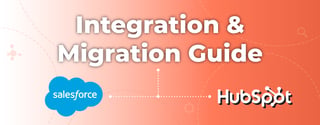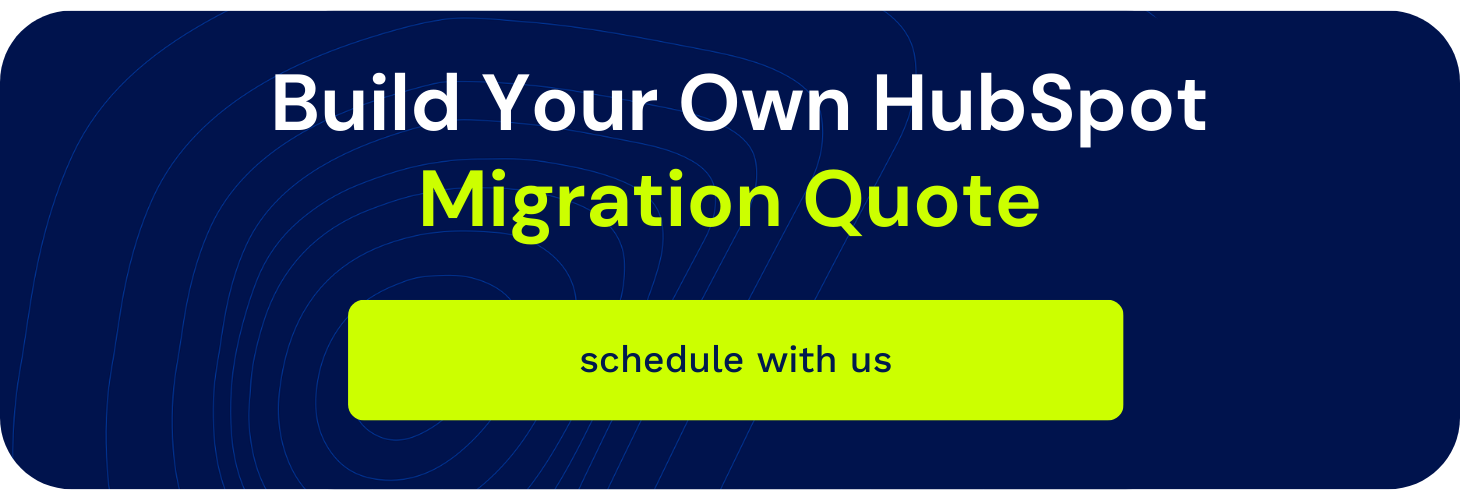HubSpot, Salesforce, or Both: Which One Is Better for You?

When we think of a CRM, Salesforce is perhaps the first platform that comes to our mind. That’s because it has been in the game for the longest time since 1999 and is used by a range of businesses. On the other hand, HubSpot also offers a powerful, easy-to-use CRM, making it a viable alternative to Salesforce.
Before you decide on which CRM to use, here are a few things you should keep in mind:
- The complexity of your sales cycle
- The number of sales users
- Integrations through finance or other operations
- Whether sales production is an opportunity
- The level of lead intelligence needed
Here are a few more key differences between Salesforce and HubSpot:
Pricing
Plans
HubSpot's CRM suite includes several free tools, Marketing Hub, Sales Hub, Service Hub, CMS Hub, and Operations Hub. Their Starter plan starts at $68/month, Professional plan at $1,600/month, and Enterprise plan at $4,000/month (billed annually). See HubSpot pricing here.
The Sales and Service Cloud of Salesforce offers four pricing plans: Essentials ($25/user/month), Professional ($100/user/month), Enterprise, ($175/user/month), and Unlimited ($325/user/month), billed annually. Moreover, there are also extra costs associated with Salesforce. Most users have to hire specialized admins and pay extra for support as they scale.
Users
Both platforms require payment based on user count. However, Salesforce charges every person for CRM access regardless of whether they're using Saleforce's tools. This means that managers or stakeholders solely needing insights into reporting or trends will need their own license. If these people don't have their own license, they would need to ask someone with access to look into the CRM reports on their behalf. Potential bottlenecks are created since there are multiple steps involved for a non-user to see a report. HubSpot on the other hand offers "free seats," which permits non-sales users to look into the CRM while withholding the bells and whistles of HubSpot tools. If someone isn't going to be utilizing the CRM tools to the fullest, why pay for them? The best part is that the number of free seats is unlimited so that all stakeholders in your organization can have the visibility they want.
Support
In terms of post-sale support, HubSpot includes phone and email customer service in all Professional and Enterprise plans whereas Salesforce charges 30% net cost. Salesforce will include technical support ticket submissions, but connecting with a team member directly to ask questions or receive a walk-through would cost extra.
Simply put, Salesforce has many additional costs that add up over time, while HubSpot offers a more transparent and scalable pricing model for developing businesses.
Current Market Stance & the Future
According to G2’s comparison of HubSpot Sales Hub vs. Salesforce CRM, HubSpot Sales Hub rates 4.3/5 stars with 6,949 reviews. By contrast, Salesforce CRM rates 4.2/5 stars with 11,085 reviews. Based on user ratings, HubSpot surpasses Salesforce in terms of ease of use, ease of setup, quality of support, and more. This is due largely in part to HubSpot's user friendliness. Salesforce may have endless customization, but it takes more resources and technical expertise to master the many system options. The Salesforce user experience is more disjointed since Salesforce has grown through acquisitions like Pardot. On the other hand, all of HubSpot's multiple hubs have been built by HubSpot so everything is seamlessly integrated.
According to Datanyze, Salesforce has the most significant CRM market share with 34.87%, while HubSpot has roughly 0.2%. However, HubSpot owns almost a third of the marketing automation market share (29.57% to be exact) while Salesforce has 4.80% market share.
Ultimately, it's your choice based on your business needs and budget whether to utilize Salesforce or HubSpot. If you're questioning the direction you want to go in, ask our HubSpot experts today if making the switch or integrating makes sense for you.

